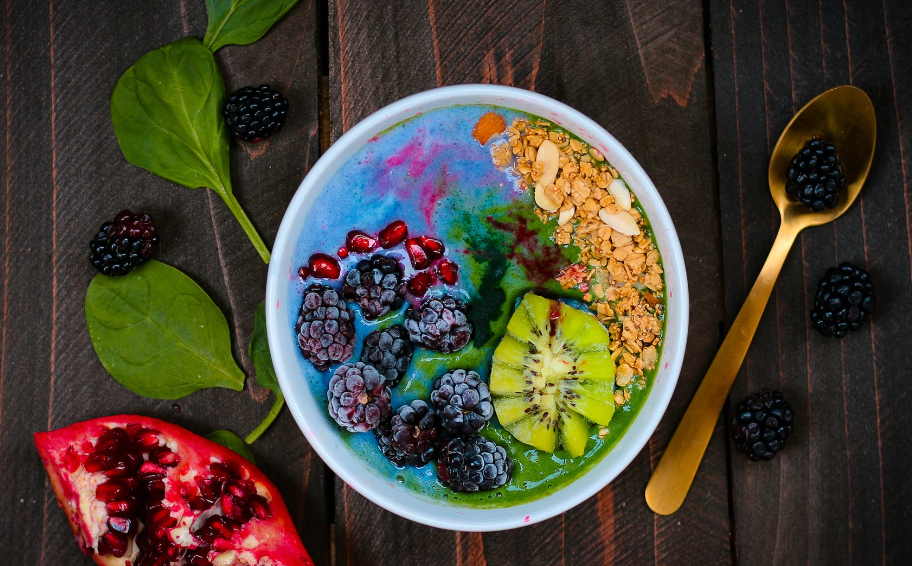Losing weight is a journey that requires a combination of balanced eating, regular physical activity, and adopting healthy lifestyle habits. When it comes to food choices, focusing on nutrient-dense options can help you achieve your weight loss goals while still providing essential nutrients for overall well-being. In this comprehensive guide, we’ll explore the top 10 best foods to eat when losing weight, providing insights into their nutritional benefits and how they can support your weight loss journey.
1. Lean Protein Sources: Fueling Metabolism and Muscle
Protein is an essential nutrient that can play a significant role in weight loss. It helps increase satiety, which can prevent overeating, and supports muscle growth and repair. Opt for lean sources of protein such as chicken breast, turkey, fish, tofu, tempeh, and legumes. Including protein in your meals and snacks can help stabilize blood sugar levels and keep you feeling full for longer periods.
2. Whole Grains: Sustained Energy and Fullness
Whole grains provide complex carbohydrates that offer sustained energy and promote feelings of fullness. They are rich in fiber, which aids digestion and helps control appetite. Opt for whole grains like quinoa, brown rice, whole wheat pasta, and oats. These options are less processed and retain more nutrients compared to refined grains.
3. Leafy Greens and Non-Starchy Vegetables: Nutrient-Packed Goodness
Leafy greens and non-starchy vegetables are low in calories and high in nutrients. They are rich in fiber, vitamins, minerals, and antioxidants that contribute to overall health. Incorporate vegetables like spinach, kale, broccoli, cauliflower, and peppers into your meals. They add volume to your plate without adding many calories, helping you feel satisfied while supporting weight loss.
4. Fruits: Natural Sweetness and Fiber
Fruits are a source of natural sweetness and provide vitamins, minerals, and dietary fiber. While fruits contain natural sugars, they also offer important nutrients that contribute to a balanced diet. Choose whole fruits like berries, apples, oranges, and pears. These options are rich in fiber and can satisfy your sweet cravings in a healthful way.
5. Nuts and Seeds: Healthy Fats and Satiety
Nuts and seeds are rich in healthy fats, protein, and fiber, making them a satisfying snack option. While they are calorie-dense, the combination of nutrients helps control hunger and prevent overeating. Opt for portion-controlled servings of almonds, walnuts, chia seeds, and flaxseeds. Including them in your diet can provide sustained energy and support overall well-being.
6. Greek Yogurt: Protein-Rich and Probiotic Benefits
Greek yogurt is a protein-packed dairy option that can help you feel full and satisfied. It also contains probiotics, which support gut health and digestion. Choose plain, non-fat or low-fat Greek yogurt and avoid flavored varieties that may contain added sugars. You can enhance the flavor with fresh fruits, nuts, or a drizzle of honey.
7. Eggs: Versatile and Protein-Rich
Eggs are a versatile and nutrient-dense food that offers high-quality protein and essential nutrients. They can be prepared in various ways and incorporated into different meals. Including eggs in your breakfast or as a protein source in salads can help increase satiety and provide essential amino acids for muscle maintenance.
8. Lean Meats: Balanced Protein and Nutrient Profile
Lean meats, such as skinless poultry, lean cuts of beef, and pork tenderloin, provide a balanced combination of protein and nutrients. They are lower in saturated fats compared to their higher-fat counterparts. Lean meats can help you meet your protein needs while supporting weight loss and maintaining muscle mass.
9. Legumes: Fiber-Rich Plant Protein
Legumes, including beans, lentils, and chickpeas, are excellent sources of plant-based protein and dietary fiber. They can be used in various dishes, such as soups, salads, and stir-fries. The combination of protein and fiber in legumes promotes fullness, stabilizes blood sugar levels, and supports digestive health.
10. Water and Hydration: The Unsung Hero
While not a food, proper hydration is crucial for weight loss and overall health. Drinking enough water helps regulate appetite, supports metabolism, and aids digestion. Staying hydrated can also prevent mistaking thirst for hunger. Aim to drink water throughout the day and prioritize water-rich foods like fruits and vegetables.
In conclusion, making mindful food choices is essential when you’re on a weight loss journey. Incorporating these top 10 best foods into your diet can support your goals by providing essential nutrients, promoting satiety, and helping you maintain a balanced and healthful eating pattern. Remember that sustainable weight loss involves creating a healthy lifestyle that includes regular physical activity, proper hydration, and balanced eating habits. Consulting a healthcare professional or registered dietitian can provide personalized guidance tailored to your individual needs and preferences.
